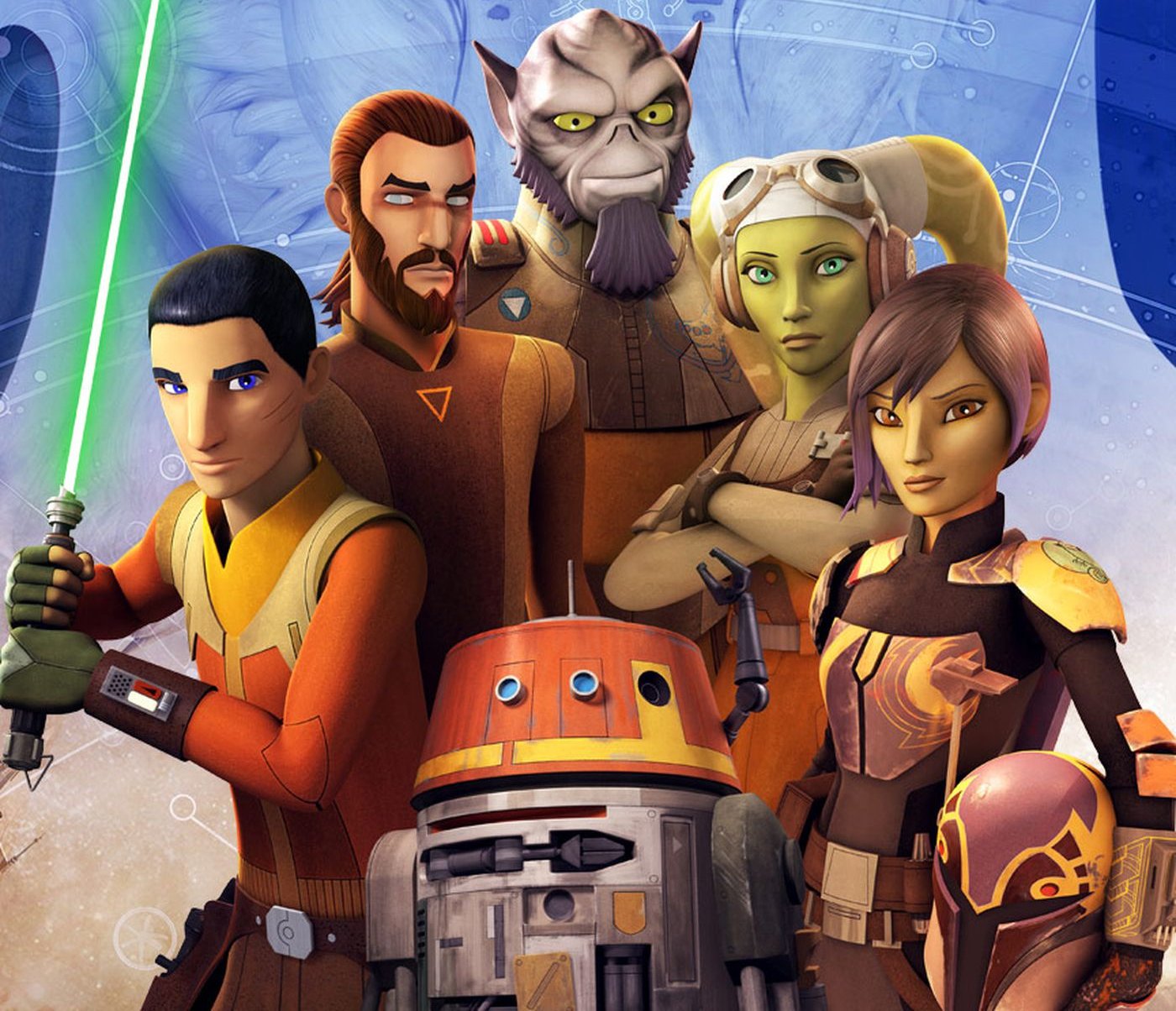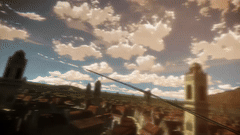We asked EPQM members to contribute a single work of fiction that they feel is remarkable and should be watched/read by everyone. Here is what they came up with.
Contributor: Siddhartha Lal
Work. Star Wars: Rebels
Category. Animated series (Western)
Why watch this? Can watching a new animation series rekindle the magic of stories you adored in your childhood? Siddhartha believes that it is possible, and offers Star Wars: Rebels as evidence.
Show More
I’ve been a Star Wars (SW) fan since my childhood, ever since I first saw the original trilogy of films, read the comics, novelisations etc. It’s been a love affair that endured. Howevere, I was largely disappointed by the prequel and sequel trilogies; perhaps this is true of many other SW fans as well. All of this reinforced my belief that Lucas’ original vision for the SW galaxy was never going to be bettered. Now that’s the funny thing with life, you always get a chance to be proved wrong. Some years ago, I came across the SW animation show “Rebels” on an online platform. The platform had the familiar SW “Clone Wars” show as well, but perhaps my own experience with the prequel trilogy kept me away from that. Which is why I decided to give “Rebels” a chance, and was hooked right away.
I could see all the familiar SW themes, tropes and all that. The events of Rebels takes place just a few years prior to those of Episode IV: A New Hope, and essentially set the stage for the original trilogy. Ezra Bridger, a force-sensitive orphan thief on the planet Lothal, must team up with an unlikely band of heros to take on the oppressive might of the evil Empire. The teammates appear to be smugglers at first, but don’t be fooled. Kanan Jarrus is a Jedi padawan whose apprenticeship was interrupted by the purging of the Jedis at the end of the Clone wars. Hera Syndulla is a gutsy Twi’lek, a chieftain’s daughter who ran away from home along with her (not-so-friendly) military grade droid Chopper in order to forge her destiny. She is an extraordinarily skilled starship pilot, better than even the very best of the Imperial academy. Sabine Wren is the eldest daughter of a Mandalorian clan, ex-Imperial academy trainee who ran away from the Empire (and her family) when she created an invention far too destructive for her tastes; a fighter and demolitions expert like her mother, she inherits her vivid artistic streak from her father. Garazeb Orelios is a Lasat ex-honour guard who fled his planet when the Empire brutally invaded. He brings brute force and sarcasm to the team. And Chopper is … just Chopper. Full of attitude and stubborn, but extremely resourceful and brave to a fault when it comes to helping his family. They have their faults and flaws, but you love them for struggling to become better versions of themselves, discover the hidden hero within.
Over four seasons, the team becomes an inseperable family devoted to formenting rebellion against the Empire across the Galaxy, and especially on Lothal. Through their adventures, we learn many important pieces of the history that led to the formation of the Rebellion, the creation of the Death Star and so on. These were all gaps that were being filled in for me, and I enjoyed all of it. The plot is multi-threaded and engaging, the character development excellent. We meet formidable new foes such as Grand Admiral Thrawn (who was co-opted from SW Legends novels such as the Thrawn trilogy by Timothy Zahn) as well as familiar ones such as Darth Vader and Darth Maul (now just Maul). Fan favourites Lando Calrissian, Leia Organa, Bail Organa, Obi-Wan Kenobi, Ahsoka Tano, and Yoda all make appearances, and some such as Ahsoka have very important roles to play. Other memorable new characters include Agent Kallus, Hondo Onaka, Cham Syndulla, Saw Gerrera and Captain Rex (though some fans will be familiar with some of these from the Clone Wars series).
Across the seasons, we see our protagonist Ezra Bridger grow from a callow youth to a (reasonably) mature young man ready to embrace his destiny. He falls in love, meets several triumphs as well as deep tragedies along the way, all of which pave the way for him to rise to meet his ultimate goal at the very culmination of the series. Along with Ezra, I grew to love each and every member of the Rebels family, celebrated their victories and endured their defeats with them. The series ended on a high point for me, tantalisingly open for the appearance of the Rebels in other SW projects. As they never appeared in either the original or sequel triolgies, the SW fandom is buzzing with news that several of them are likely to appear in the upcoming live-action series based on Ahsoka Tano. Till then, I recommend watching (or re-watching) Rebels. May the Force be with you.
Contributor: Abhirup Mukherjee
Work. Attack on Titan
Category. Animated series (Japanese)
Why watch this? Hajime Isayama has pulled off something that I am sure all fiction lovers have dreamt of at some point: create a story that gives the impression that everything had been planned out since the very beginning. Complemented by some of the finest musical scores to appear out of the industry, Attack on Titan is a show that leaves you questioning your own moral compass at the end.
Show More
If I had to sell Attack on Titan, I could just spout the usual stuff about insane plot twists, thrilling backstories and engaging characters. While I do believe that Attack on Titan (AOT) is one show that embodies all these aspects to their fullest, such a pitch will probably not be that compelling for a random person. Instead, I will point out two specific (and somewhat meta) features of AOT that take the show into a class of its own.
- Taking Chekov’s gun to the extreme: Chekhov’s gun is a narrative principle that states that every element in a story must be necessary, and irrelevant elements should be removed. If a writer features a gun in a story, there must be a reason for it, such as it being fired sometime later in the plot. AOT takes this principle to its limit, such that almost every frame in the anime has some purpose which is realised by the viewers, sooner or later. This is a show which does not insult your intelligence in the slightest. No, seriously. Lose focus for a few seconds and you might miss a massive reveal!
- Powerful use of perspective in story telling: Several events in the show are presented repeatedly, but from different perspectives. The initial telling of the event is typically from a certain character’s or group’s point of view, and is designed to draw the viewers into sympathising with these character(s). A later-in-time telling of the same event from the opposing side then shatters the confidence of the viewer and makes them question their allegiance. This is used from time to time in the show to create a powerful effect where the viewer is able to empathise with all sides in the conflict.
While the story is one of fantasy, the elements of fantasy only serve as metaphors for real world constructs, and the show has deep connections with the very world we live in, through mature and dark themes like racism, nationalism and imperialism. If nothing else, I leave you with the promise that AOT, as a show, is crafted out of utmost love and passion, and that is visible to anyone who watches the show.

